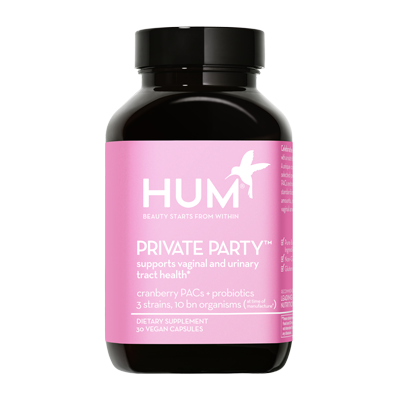Ever asked yourself if your vaginal discharge is normal? You’re not alone.
In fact, a 2017 review shared that around 10 million doctor’s visits per year are scheduled to address concerns about female discharge. So what’s up with what’s going on down there?
Fortunately, Wendy Goodall McDonald, MD, FACOG—a Chicago-based, board-certified OB-GYN—has answers. Here’s a closer look at what you should know about vaginal discharge.


First, what is vaginal discharge?
“Vaginal discharge is the shedding of cells from the vagina and cervix mixed with mucus, bacteria, and water,” Dr. Goodall McDonald explains. In addition, the UK’s National Health Service explains that discharge helps keep the vagina clean and moist. Further, it may help prevent infection.Is vaginal discharge normal?
Rest assured, ladies: In many cases, vaginal discharge is perfectly normal. According to Dr. Goodall McDonald, the volume and type of vaginal discharge vary based on several factors, including:- your age
- the point of your menstrual cycle
- whether or not you’re on birth control
- different types of birth control
- your state of pregnancy

What does normal discharge look like?
If you’re concerned about vaginal discharge, investigate its:- color
- consistency
- odor
- timing in relation to your menstrual cycle
What might vaginal itching and discharge indicate?
While it’s understandable to stress over vaginal itching and discharge, the two don’t always indicate a medical concern. To begin, “Excess moisture can cause itching and irritation, like when you don’t change clothes after working out or if you wear polyester all day,” the OB-GYN shares. Additionally, she says that contact from soaps, detergent, fabric softener, or fragrance could potentially be to blame.When to See a Doctor
However, if your vaginal environment is very itchy alongside discharge and a foul odor, it could signal a greater concern. (Further, if the color deviates from the norms explained above, it’s worth consulting a medical professional.) Dr. Goodall McDonald says that this scenario could point to:- candida overgrowth + other types of excess yeast
- bacterial inflammation
- STIs

How to Improve Vaginal Health
Again, if your vaginal discharge appears normal as outlined earlier, there’s no major cause for concern. But at the same time, you can always take simple steps to maintain a healthy vaginal environment. Here are a few tips to help you improve your vaginal health naturally.- Increase air flow whenever possible. First, Dr. Goodall McDonald urges you to change out of damp or wet clothing immediately to reduce the risk of irritation. Second, she particularly prizes cotton underwear above other materials. “I also recommend going commando at night for greater air circulation,” she adds.
- Be gentle when cleaning. Next, she warns against using soap inside of the vagina in favor of external washing around the vulva only. Remember: The vagina can clean itself, so be gentle and let it do its work. You can also use clean body or feminine washes around the area, and/or switch to non-irritating, fragrance-free tampons, soaps, and laundry detergents.
- Don’t shy away from getting examined. All things considered, Dr. Goodall McDonald shares that she’s not against trying safe home remedies once. In particular, she recommends OTC anti-fungal creams for itching and boric acid to tame early signs of bacterial inflammation. “[But] if those treatments don’t work and/or there’s any [greater] concern, having an exam and test is best,” she urges.
- Stay on top of your overall health. “Keep a healthy diet low in simple sugars,” she recommends. Further, she adds that if your nutritional habits or weight pose bigger health concerns, weight management may help maintain a healthier vaginal environment. (For instance, in the latter case, greater weight may lead to greater perspiration and less aeration.)
- Consider supplementing. Last but not least, a probiotic for vaginal health can help maintain yeast balance, restore vaginal flora, and promote overall vaginal health. Be sure to look for a vaginal probiotic with clinically demonstrated benefits.
The Bottom Line
Once again, vaginal discharge is often normal and healthy. So unless it deviates from the norm and causes irritation and other unpleasant symptoms, don’t let it stress you out. However, in the latter case, be sure to consult your doctor. Also remember that there’s no reason to be ashamed of your vaginal concerns. Rest assured that you’re not alone!More like this









